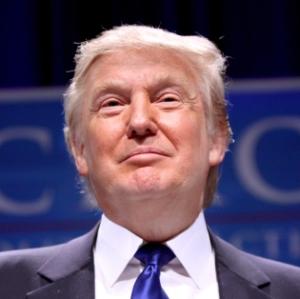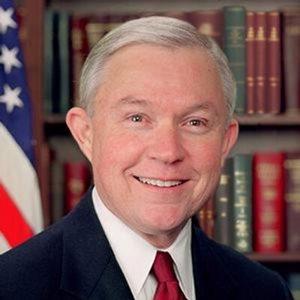This article was produced in collaboration with AlterNet and first appeared here.
President Trump last week signaled a dramatic turnaround in administration marijuana policy, telling Colorado Republican Sen. Cory Gardner that the Justice Department would not go after state-legal marijuana in Colorado and that he would support moves to address the contradiction between legal marijuana states and federal prohibition.

And Trump didn't even bother to tell Sessions he was about to cut the legs out from under him, an almost unprecedented slight from a president to his attorney general.
Gardner, a Republican up for reelection in a pot-friendly state, had placed a hold on Justice Department nominees since Sessions rescinded the Obama-era policy in January and announced the apparent policy shift with a Friday afternoon press release after a phone call with Trump earlier in the week.
"Since the campaign, President Trump has consistently supported states' rights to decide for themselves how best to approach marijuana," Gardner said. "Late Wednesday, I received a commitment from the President that the Department of Justice's rescission of the Cole memo [Obama-era guidance] will not impact Colorado's legal marijuana industry. Furthermore, President Trump has assured me that he will support a federalism-based legislative solution to fix this states' rights issue once and for all."
Gardner said Trump's comments had convinced him to remove his remaining holds on Justice Department nominees, and that he would continue to work on a bipartisan legislative solution to pass Congress so Trump can "deliver on his campaign position."
"The president did speak with Sen. Gardner yesterday and again today," White House Press Secretary Sarah Sanders told reporters Friday. She said "the president is a firm believer" in states' rights and confirmed Gardner's account of the assurances he received from the president was accurate.

"Sen. Gardner has done a great service for his constituents by standing up for federalism regarding marijuana policy," said Don Murphy, director of conservative outreach for the Marijuana Policy Project. "Everyone who knew about President Trump's statements on this issue during the campaign was hoping he would uphold those values and support states' abilities to enact laws regulating marijuana for medical or adult use while in office. This news should make states more comfortable implementing their legalization programs. It should also serve as a rallying cry for lawmakers to pass comprehensive legislation that leaves marijuana policy to the states permanently."
Congress renewed spending restrictions that prevent federal interference in state medical marijuana in March, but no such protections exist for states that have regulated marijuana for adults. Trump's statements suggest that the same policy will apply to both medical and adult use providers, but the Dept. of Justice could still legally pursue cases against state-legal adult use operations if federal prosecutors choose to do so.
"With the support of the president, the American public, and mounting evidence that regulating marijuana similarly to alcohol is much preferable to prohibition, there is no reason for Congress to delay any longer," continued Murphy. "There are several pieces of marijuana policy legislation being considered right now, and every one of them should get hearings immediately."
But Washington state Attorney General Bob Ferguson was more cautious. As the head law enforcement officer in a legal marijuana state, Ferguson is adopting a wait-and-see position.
"I understand President Trump has offered his support for states to have the right to regulate marijuana and for legislation to enshrine this right in law," he said in a Friday statement. "I am cautiously optimistic that the president appears to have heard the will of the people on this issue. But this president has demonstrated a willingness to go back on his word. Until there is a formal agreement protecting Washington's well-regulated marijuana industry, I will continue to stand ready to defend it."
Given this president, that is probably the prudent position.
This work by StoptheDrugWar.org is licensed under Creative Commons Attribution-ShareAlike 4.0 International
Add new comment